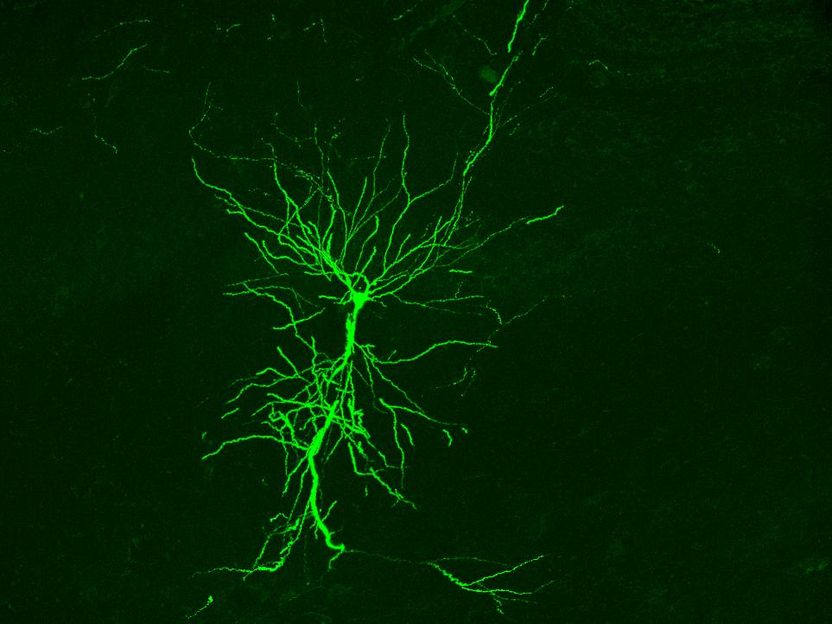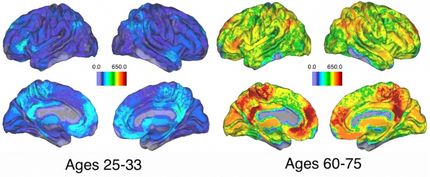Less Fear: how LSD affects the Brain
Scientists at the University of Basel have shown that LSD reduces activity in the region of the brain related to the handling of negative emotions like fear. The results could affect the treatment of mental illnesses such as depression or anxiety.

cocoparisienne, pixabay.com, CC0
Hallucinogens have many different effects on the psyche; among other things, they alter perception, thought, and temporal and emotional experience. After the Basel-based chemist Albert Hofmann discovered lysergic acid diethylamide (LSD) in the 1940s, there was a huge amount of interest in the substance, particularly in psychiatry. It was hoped, for example, that it could provide insights into the development of hallucinations, and studies were conducted on its effectiveness on illnesses such as depression or alcohol dependency. In the 1960s, LSD was declared illegal worldwide, and medical research on it came to a standstill.
In the last few years, however, interest in researching hallucinogens for medical purposes has been revived. Psychoactive substances such as LSD, particularly in combination with psychotherapies, could offer an alternative to conventional medication. It is now known that hallucinogens bind to a receptor of the neurotransmitter serotonin; how the changes of consciousness influence the activity and connectivity of the brain, however, is not yet known.
LSD alters brain activity
Researchers at the University Psychiatric Clinics (UPK) and the Department of Pharmacology and Toxicology at the University Hospital Basel (USB) have now conducted a study into the acute effect of LSD on the brain. They used functional magnetic resonance imaging (fMRI) to measure the brain activity of 20 healthy people after taking 100 micrograms of LSD. During the MRI scan, the participants were shown images of faces portraying different emotional states such as anger, joy or fear.
Professor Stefan Borgwardt and his team showed that the depiction of fear under LSD led to a notably lower level of activity in the amygdala – an area of the brain that is believed to be central to the processing of emotions. This observation could explain some of the changes in emotional experience that occur after taking hallucinogens.
Less fear after taking LSD
In a second step, the researchers, together with clinical pharmacologists at the University Hospital Basel, examined whether the subjective experience altered by LSD is associated with the amygdala. This appears to be the case: the lower the LSD-induced amygdala activity of a subject, the higher the subjective effect of the drug. “This ‘de-frightening’ effect could be an important factor for positive therapeutic effects,” explains Doctor Felix Müller, lead author of the study. The researchers presume that hallucinogens may cause many more changes in brain activity. Further studies will investigate this, with a particular focus on their therapeutic potential.
Original publication
Most read news
Original publication
Felix Mueller, Claudia Lenz, Patrick Dolder, Samuel Harder, Yasmin Schmid, Undine Lang, Matthias Liechti, Stefan Borgwardt; "Acute effects of lysergic acid diethylamide (LSD) on amygdala activity during processing of fearful stimuli in healthy subjects"; Translational Psychiatry; 2017
Topics
Organizations
Other news from the department science

Get the life science industry in your inbox
By submitting this form you agree that LUMITOS AG will send you the newsletter(s) selected above by email. Your data will not be passed on to third parties. Your data will be stored and processed in accordance with our data protection regulations. LUMITOS may contact you by email for the purpose of advertising or market and opinion surveys. You can revoke your consent at any time without giving reasons to LUMITOS AG, Ernst-Augustin-Str. 2, 12489 Berlin, Germany or by e-mail at revoke@lumitos.com with effect for the future. In addition, each email contains a link to unsubscribe from the corresponding newsletter.
Most read news
More news from our other portals
Last viewed contents
Parasitic_worm



















































